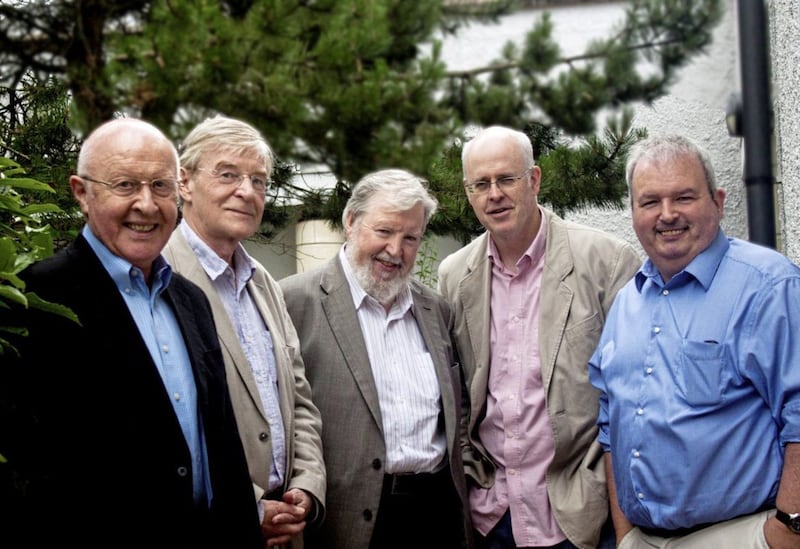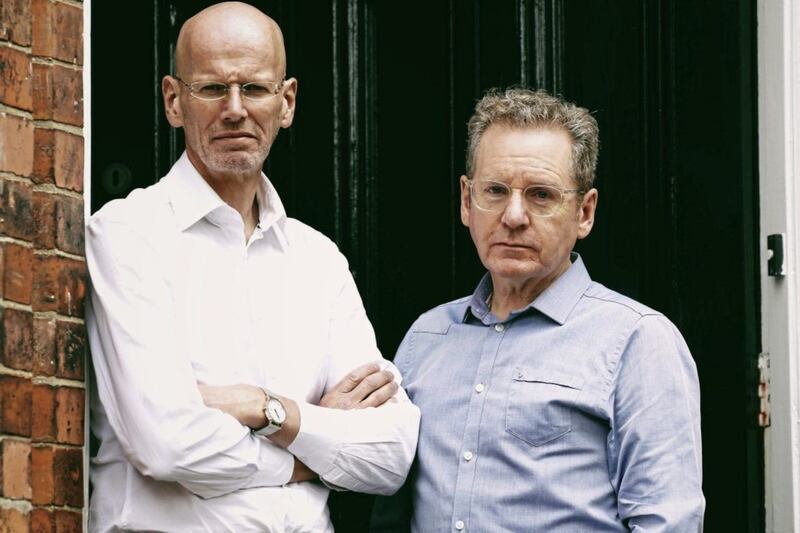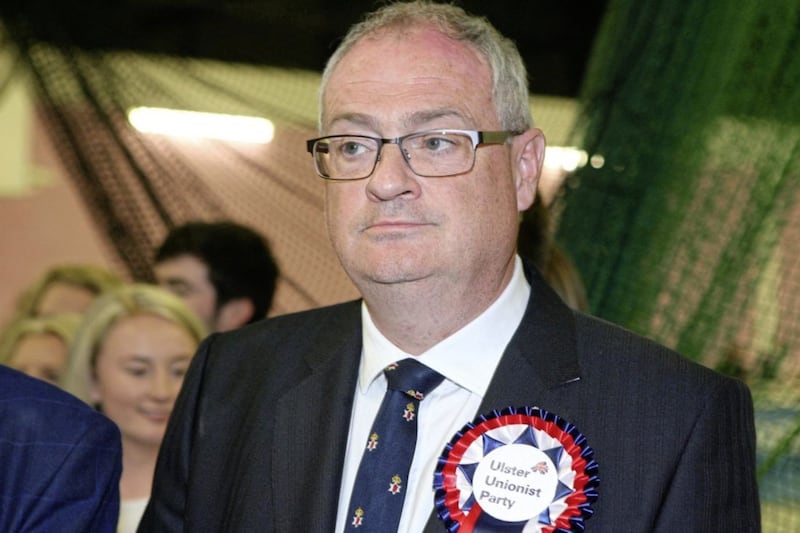WHEN it was first published in 1999, the book Lost Lives instantly became the definitive document of the deaths directly related to the Northern Ireland Troubles between 1968 and 1998.
A weighty, sobering reminder of the conflict's tragic human cost, the book was a seven year labour of love by journalists David McKittrick, Brian Feeney, Chris Thornton and the late Seamus Kelters, along with historian David McVea, bearing the full title Lost Lives: The stories of the men women and children who died as a result of the Northern Ireland Troubles.
Now, 20 years on from its original publication and over a decade since Lost Lives was last in print, some of those stories are making their way to the big screen in the new project from co-directors Dermot Lavery and Michael Hewitt, founders of the Belfast-based DoubleBand Films.
Premiering at the London Film Festival tomorrow evening, Lost Lives features narration from a selection of Ireland's top acting talent including Liam Neeson, Kenneth Branagh, Adrian Dunbar, Bronagh Gallagher, Stephen Rea, James Nesbitt, Brendan Gleeson, Roma Downey, Susan Lynch, Martin McCann, Ian McElhinney, Michael Smiley, Bronagh Waugh and Bríd Brennan, each of whom has lent their voice to recounting the details of a different lost life.
The film combines this narration with archive news footage and press clippings, evocative shots of natural beauty and man-made decay and a powerful original score performed by the Ulster Orchestra.
According to Lavery and Hewitt, Lost Lives is intended as a "requiem" for the Troubles' dead and the lives shattered by their loss.

"Any time we did a documentary that dealt with the Troubles, Lost Lives was always there as a reference for fact-checking and so forth," explains Hewitt of how the film came about.
"We always felt that to only use that book as a resource was to do it a huge disservice. The book itself represents something far more important and significant than that."
"What we wanted the film to do all the time was to point back to what the book set out to achieve, which was a totality – to account for all the deaths and to give us an insight into all the grief surrounding those stories," adds Lavery, who previously co-directed with Hewitt on 2014's hit Liam Neeson-narrated motorbike racing documentary, Road.
"The book has the look of the Bible about it. When you look at it, it has the feeling of a monument, of a reproach for us as a society that we weren't able to resolve our differences and our challenges without allowing it to drift into a horrendous 30 year conflict.
"It's 'a lasting reminder of the sadness and the pity of it all, a lasting reminder that war is hell,' as David McKittrick so memorably put it."
Indeed, the film-makers felt a great responsibility to McKittrick and his fellow authors in taking on the film, as Lavery explains.
"We didn't want to let them down," he tells me. "They've done something very important in writing Lost Lives."
The immediate question the duo faced was which of the lost lives documented within the book would be chosen to represent the totality of the dead.
"From the beginning, we knew that was going to be a challenge," explains Lavery.
"The book is completist and lists everybody who died up to that point [1998] in the Troubles. And the writers have continued to maintain and update that list right up until this year.
"The first thing we did was commit to naming all those lost lives in the film, although at the time we weren't sure how we were going to do it or how it might play out.
"After that it was about making a selection from the book chronologically in order to represent the totality of the Troubles from beginning to end and, within that, to represent the spirit of the different types of lost lives across the period of the Troubles."
Indeed, one of the most powerful moments of their Lost Lives film is when every Troubles death to date is listed during the end credits – the final entry being journalist Lyra McKee, murdered by dissidents in April of this year.
"It's the least cinematic element of the film, but it's the part that's most hard-hitting," says Hewitt. "It's just the names of the lost lives and it couldn't be more powerful."
Lavery adds: "Just seeing all those names at the end, what we hope the audience takes from that is, OK, they've heard in more detail about a particular selection of names, but the film isn't about elevating them: you could lift practically any name out of those 3,700 and find the same experiences replicated time after time after time for so many families.
"The film is a snapshot into that loss and that hurt."
As for the stories given voice by the famous Irish acting talent, the film does an admirable job of presenting a small cross-section of the lives claimed by bomb and bullet, from British soldiers and IRA men to children, innocent bystanders and the disappeared.
"That was a challenging job, but we hope we kind of maintained the spirit of the book by representing all kinds of lost lives in the film," Lavery says.
And it seems that Ireland's top actors couldn't have been more helpful when it came to the film, as Hewitt reveals.
"People were very keen, we had absolutely no difficulty in getting people on board," he tells me. "I think there was word-of-mouth from one actor to another – people just understood what we were doing and wanted to be a part of it.
"It was a great experience. They were all extraordinarily talented actors who could deliver these words in such a powerful way, and we also felt that there was something too in the fact that all these household names were kind of saying, 'Yes, we're behind this and want to contribute to it'. They were lending their voices to us in more ways than one."
Soberingly, Lost Lives arrives in cinemas at a time when the Brexit debacle has put the British border in Ireland back at the top of the news agenda in a way not seen since the Troubles were at their height, as well as seemingly providing a catalyst for renewed dissident republican activity.
"It's really only in the last year that Brexit and the border and all the dangers inherent in that came increasingly into focus," comments Lavery.
"But there's no doubt that if the film can play one small part in making people remember why we need to be very careful about what we do and where we don't want to go back to, we would be very pleased."
:: Lost Lives will premiere at the London Film Festival on Thursday October 10 before screening at QFT Belfast from Friday October 11, including a special Q&A with the film-makers on October 12. See Queensfilmtheatre.com for tickets and times. Lost Lives will also be screened on the BBC later this year.








